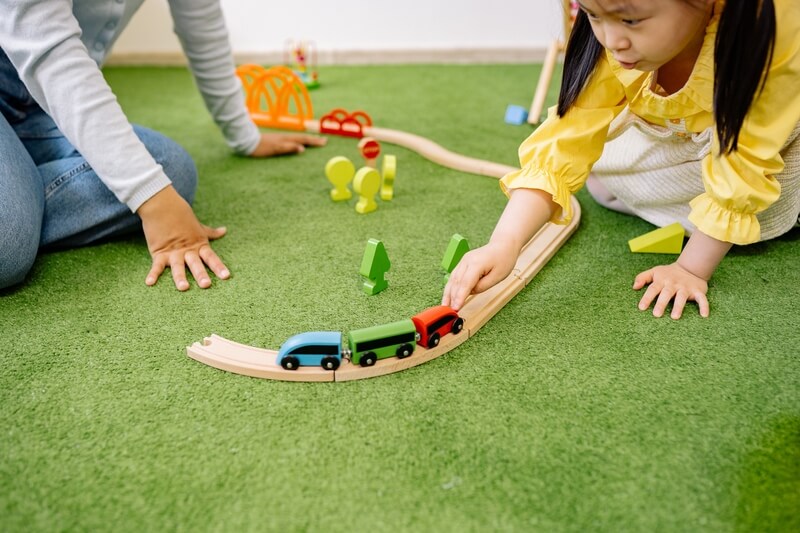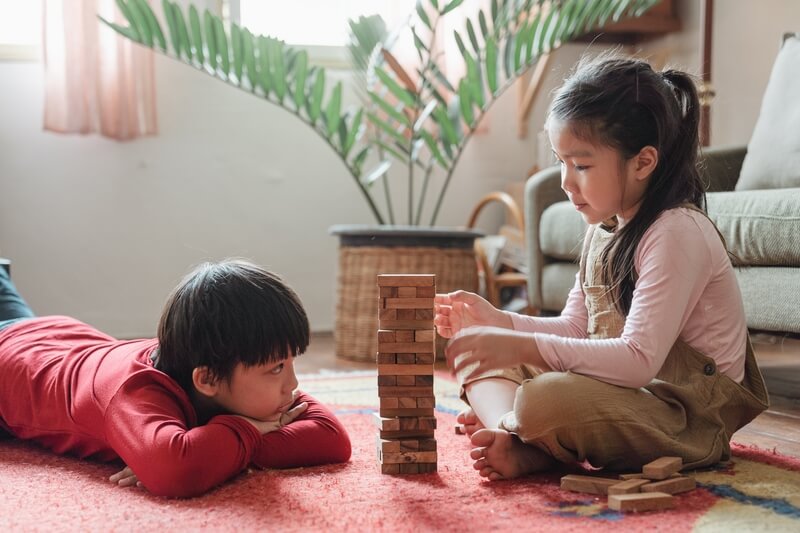-
![img]()
Honey Baked Chicken Wings
Merryn Tan
August 05, 2021
2 min
My family and I love eating chicken wings. You can never go wrong with chicken wings, especially at times like these as they are inexpensive, tender and totally delicious. However, I dislike the hassle of deep frying them hence I always opt to bake them instead.
Besides, it is also healthier to bake rather than fry as chicken wings in the oven come out a whole lot less greasy.

One of our all-time favourites is honey baked chicken wings. They are deliciously sweet and sticky and makes the perfect appetiser. If you are looking for a simple no hassle meal option, then this is definitely it.
I love using honey in my cooking as besides being delicious, honey contains endless health benefits.
One of the most important benefits of honey lies in its antioxidant properties. Antioxidants help to protect our body from cell damage due to free radicals.
Honey also tastes great as sugar replacement and when used for baking chicken wings, it adds great flavour as well as promotes caramelizing for crispier skin.
Other ingredients used for the simple yet delicious marinate are the common Asian flavours such as soy sauce and oyster (or fish) sauce.

Chicken wings should be baked until golden. This usually takes about 45 minutes in the oven.
The trick to not burning the seasoning is to use honey in the marinate and not as the glaze.
If you glaze the wings with honey before baking, the seasoning may easily burn or blacken.
Honey Baked Chicken Wings Recipe

- 5 pcs chicken wings
- 2 tbsp honey
- 1 tsp oyster sauce (can be replaced with fish sauce)
- 1 tsp dark soy sauce
- 1 tsp light soy sauce
- A dash pepper
Dab chicken wings thoroughly with paper towels.
Marinate the chicken wings with honey, oyster sauce, dark and light soy sauce as well as a dash of pepper. You may add ginger juice and slices of garlic, too, if you wish.

Mix thoroughly. Cover the container and marinate for at least 30 minutes. I like to leave them in the refrigerator overnight.

Flip the wings to make sure they are all nicely coated with the marinade.
Preheat the oven to 210°C. A hot oven makes the skin crisp.
Poke a skewer through the chicken wings.

Arrange them onto a baking rack.

Brush marinade all over the wings.
Roast at 210°C for about 45 minutes, basting occasionally during baking time. Flip the wings and brush more marinade.

Bake until chicken is golden and skin is crispy.
Remove skewer and serve immediately.
https://youtu.be/BEPJNM5TX-E
For more interesting stories and fun recipes, stay tuned to Motherhood Story!
-
![img]()
Four Ways to Save Money When Grocery Shopping
Rachel Yeoh
August 13, 2021
4 min
The winds of change—it is blowing on the price tags of almost everything at the grocery store. Did you notice?
Just last week, I was checking off my grocery list at my usual store when I had to do a double-take on the prices of cooking oil.
It was RM32.90 at five litres when I could have gotten it at RM19.90 last year.
I blinked and blinked—nope, my eyes were not playing tricks on me.
I stood there, wondering if should burst my budget and mark it as contingency spending or buy another brand of cooking oil I’ve not tried before. Image credit: Pexels
Image credit: Pexels
For many of us, shopping during a full-fledged pandemic causes anxiety; what more when it is coupled with price increase and smaller allocation for buying foodstuff and household items?
Well, it just means that we have to make little adjustments when we go grocery shopping. Small changes, small savings and at the end of the month, quantifiable results!#1 Do the Math
 Image credit: Pexels
Image credit: Pexels
Most of us know this, but we rarely put it into practice.
When picking fruits, vegetables or meats, it pays to do simple calculations on how much it actually costs per unit size or per 100 gram/100 millilitre. Knowing the unit price tells you how much something costs per item.
Recently, I was looking to buy baby spinach. After scanning the shelf for a hot second, I narrowed it down to the two possible competitors—both of them impeccably packed from two different countries. The cheaper option was from Australia, and the pricier option was from Cameron Highlands, Malaysia. Both of them look like they're about the same size and weight. But just a quick check on the weight showed that the local option was cheaper per 100 grams.
It is usually easier to discern when purchasing meats as you can find the unit price in small print under the main price.
Or else, always remember to do the math because it can help you make better buys.#2 Head to the Bargain Section
 Image credit: Pexels
Image credit: Pexels
I love the bargain section as it is the place for my creativity to shine.
Cream cheese on half off? Looks like it is going to be cream cheese pasta tonight!
What about a special meat marinade I’ve never tried before going for RM2? Great to marinade proteins, pop into the oven and served with rice, mash or anything that I think may be suitable.
When approaching the bargain section, one must remember that it is not buying the item because it is cheap but selecting one that can replace a meal that has been allocated in your list because it is more affordable.
At my place, there are always different sodas going on 80% off, but that does not mean that I should get it. It is not part of my menu, though it is cheap.#3 List Down a Cap Price
An item is only worth how much you are willing to pay for it.
When creating your grocery list, jot down the max amount you are willing to pay for it and if the item is more than your cap price at the store, mull on how you can be flexible around the items you want to purchase.
I do a quick Google search on what is the best replacement of X item for cooking Y.
I wanted to do a Japanese dish the other day, and one of the ingredients I had to use was sake. When I found it, it was more than what I was willing to pay. The sales attendant looked at me and introduced me to an alternative he said many would buy instead of the sake I was looking at. Image credit: Pexels
Image credit: Pexels
Then it struck me, ‘Ah, a cheaper replacement!’
I did a quick Google search, and I found that leftover white wine was a good sake alternative. Coincidentally, I did have leftover white wine at home opened two days earlier.
Another way you can keep your cap price is to opt for house brands. This is common when it comes to buying off-the-counter medication. Just ask the pharmacist, and they will be more than happy to assist you.
When shopping house brands, check the ingredients list against your branded item, and you might find that they have similar ingredients, good enough for me to make a swap and not pay for the branded item’s advertising efforts.#4 Use E-Wallets
 Image credit: Pexels
Image credit: Pexels
We should all be fans of cashless payments because it is quicker, safer and it details how much you spent in a particular store at a particular date. There is no running from it. There is no wondering what happened to that RM50 I withdrew from the ATM that day. Nope, just check your payment history in the app. You can save a trip to the ATM and have your spending accounted for.
E-wallets can help you keep your budget when shopping, too. Reload your e-wallet to the capped expenditure for your shopping trip and take it as a challenge to keep within your allocated budget.
These apps also give back by giving you rewards like points where you can redeem cash and discount vouchers.Time To Get Prudent With Money
Skimping on purchases and setting a budget for your buys is not being a cheapskate, it is being prudent when it comes to money management. It is powerful to not be a victim of overspending because you got caught up with your emotions or you lost track of how much was spent. Image credit: Pexels
Image credit: Pexels
Money management is not a talent, it is a skill you acquire when you build habits around tracking your spending and giving money its purpose. For many people today, finances are spread thin to cover needed expenses like bills, loans and other commitments.
So the next time you head out to grab your home essentials, be sure to:- Identify what you want to buy
- Create a budget with cap prices
- Reload your budgeted amount to your e-wallet so you won’t overspend
Happy shopping!
For more interesting stories and fun recipes, stay tuned to Motherhood Story! -
![img]()
The 6 Stages of Play Development
Carol Low
August 04, 2021
3 min
"Play is the work of the child,” says Maria Montessori. And play, they should! What else is a child to do with themselves, right? Albert Einstein also once said that play is the highest form of research. So, let our children play away and reap the power of play!
While we may see play as a way to keep a child’s time occupied, play has a much bigger role in itself. It is a form of development necessary for a child. Lots of things happen during play, whether it’s structured or unstructured playtime.
Mildred Parten (an American sociologist and researcher) identified the six stages of play development. Learning what these stages are about helps us mummies learn about our child’s play and how it helps them in many ways.Why Play Time Is Important and How Children Grow Through Play
In their pretend world of play, children pick up lots of skills that are essential to their real world. Through play, one of the most important things that children learn is about themselves. They learn about what they like and dislike, discover their interests and strengths.
They also learn to develop skills like problem-solving and decision-making, being adaptable and creative, and build social skills like learning to share, resolve conflicts, and how to fit in with others. As their play deepens, they also pick up language and communication skills, and other academic skills like math and science.
Playing is very much a building block towards self discovery and how all this fits in with the world around them. These are the six stages of play development defined by Mildred Parten and how each stage develops the child.Learning Through The Six Stages of Play Development During The Formative Years
- Unoccupied Play - Birth to 3 months
- Solitary Play - Birth to 2 years
- Onlooker Play - 2 years
- Parallel Play - 2+ years
- Associative Play - 3 to 4 years
- Cooperative Play - 4+ years
Unoccupied Play
 Image credit: Pexels
Image credit: Pexels
Babies learn to move their hands and legs at this stage, and even practice manipulating materials around them, grasping on to things and exploring in random manners. This is the beginning of play and sets the initial development towards the later stages of play.Solitary Play
 Image credit: Pexels
Image credit: Pexels
This is a stage where the child plays alone. They may not notice or acknowledge others around them, and may not be interested to play with others yet. In solitary play, the child learns to explore freely and master motor and cognitive skills. This is an important stage to prepare them for play with others.Onlooker Play
 Image credit: Pexels
Image credit: Pexels
Also known as Spectator Play, the active part of their play is observing or watching others in play, but do not join in. This is a normal part of play development, where they learn by watching others. As they watch and learn, they form many questions from their observations. They start to learn about social rules and relationships with others, too.Parallel Play
 Image credit: Pexels
Image credit: Pexels
This is the stage where a child plays alongside others, but not playing together just yet. They play in close proximity, with no interaction but paying attention to what they other is doing. They may mimic the other’s play, but they do not overlap nor engage with each other.Associative Play
 Image credit: Pexels
Image credit: Pexels
At this stage, a child starts to interact with others. Being side-by-side, they are still doing their own thing, with no common goals, but they talk and ask questions of the other. This is the onset of them learning how to understand and get along with each other.Cooperative Play
 Image credit: Pexels
Image credit: Pexels
Now the child actively plays with others and they share a common goal in their games. They collaborate and socialise with each other. At the initial stage, conflicts are common as they learn how to share, take turns, and learn to accept different opinions and ways of doing things.Understanding Play Development Eases Mummies’ Concerns
Without understanding the stages of play, some of us mummies may worry about why our child is playing in isolation and whether that is a normal thing. We may be pushing for them to start playing with another child or siblings when they are not ready.
Once we have a better understanding of how they naturally progress from one stage to another, we now know that we can let them grow and play with the flow, the way it naturally progresses with each child.
More importantly, we let our child play and grow at their own pace. We can help them along with guided play as they progress, when the time is right to do so.
For more interesting stories and fun recipes, stay tuned to Motherhood Story! -
![img]()
Having Children: Less Is More, or More Is Less?
Jia Ying
August 13, 2021
7 min
Our marriage life always entail the issue of having children. Even if you and your spouse are not having any ideas yet, everyone around you will start probing you with questions like:When are you going to have babies?
How many babies do both of you plan to have?
If you think the questions stops after giving birth to your first child, you might need to think again. Right after the labour, even when you are still in the hospital, some people might start asking you questions like:When are you going to have another one?
Don't you want your first born to have a sibling to play and talk to? Children need company.
Never expect that starting a family could put us into such a dilemma.To have one child or to have more than one?
It really depends on you and your spouse.
Are you financially, mentally and physically prepared to raise more than one child?
Do you have other life priorities besides your family?
Or more importantly, what's your picture of an ideal family?
If you are still uncertain, read on to find out more about the pros and cons of having one child and more than one.Pros of Having a Single Child
 Your single child can receive your undivided love and attention (Image credit: Canva).
Your single child can receive your undivided love and attention (Image credit: Canva).#1 You are less financially and physically burdened.
If you are planning to start a family now, you need to know the true costs of raising a child in Malaysia.
Totaling up from delivery costs, schooling costs and university fees, you will need around RM 400,000 and RM 1.1 million.
So, it's pretty obvious that having a single child would really make your responsibility of bringing home the bacon less stressful.
You will find it easier to save for your child's tertiary education, too.
On top of this, having a single child would be less physically demanding as you will only need to deal with one child whenever he/she is throwing tantrums or having meltdowns.#2 You get to develop a stronger bond with your child
While getting all your attention, you will have the opportunity to spend enough time with your single child.
You will get to know your child better where you are more attuned to his individual emotional needs. This indeed helps create a stronger bond between you and your child.
While talking and discussing about his challenges with an adult like you, he will be able to get better life prospects besides knowing that he has a support system which will stay with him through the ages.
And since you spend more time teaching your child to be independent, your child will be able to develop higher self-confidence and belief in their own abilities.#3 More support and encouragement for your child
Since comparison among siblings seems to be unavoidable in multi-children families, would we stop comparing if we only have one child?
Yes, we would less likely to compare if we only have one child. Instead of condemning the child, we would be delighted by every good grade and certificate that our child receives.
Your child is not expected to live up to the standards of older siblings, since there isn't any prior achievement to be compared with.
If you still find yourself falling into the trap of comparing, you can try out this simple questioning technique to change your mindset.Cons of Having a Single Child
 Our single child may be inconsiderate at times if we overindulge him (Photo credit: Canva).
Our single child may be inconsiderate at times if we overindulge him (Photo credit: Canva).#1 You might spoil or pamper your child.
As parents, we always strive to provide our children the best. As we only have one child, we are more likely to lavish our love, attention and resources on our child.
While our only child gets all the love and affection from us, he might develop an attitude where he feels the world revolves around him. Eventually, he would tend to take things for granted and feel entitled in every aspect of life.
To avoid such occurrence, you need to set limits and teach him about delayed gratifications just as you would if you have two children. Just don't overindulge your only child.#2: You child has no one to share thoughts with except you.
All of us have stressful events and issues which we can't share them with our parents.
So, we would usually end up sharing with our siblings to relieve our stress or look for other alternatives to resolve the issues.
However, your only child would have no other reliable family members to share their problems with except you.
At times like these, he/she might feel lonely and helpless. Not only that they do not have any sibling to play with regularly, they also don't have any siblings with whom they can share their thoughts and memories with.
This can be difficult for your only child.
However, you can resolve this issue by helping your child to forge friendships during regular play-dates, preschool and talent classes.#3: Both you and your single child might get too attached to each other.
While developing closer relationship with your only child, you need to be aware of parental involvement.
Your only child may get bored with your involvement if you keep on intervening into his school and personal life.
Thus, instead of being overprotective, give your child some autonomy to make decisions. This will help maintain your close relationship while giving your child some personal space.Pros of Having More Than One Child
 Having a multiple-children family can be both challenging and satisfying (Image credit: Canva).
Having a multiple-children family can be both challenging and satisfying (Image credit: Canva).#1: Your children can have more people to rely on.
Those who have siblings would understand the love-hate relationship among siblings. You can be extremely upset with your sister and be overwhelmingly grateful to have her when she rushes to you whenever you're in trouble.
Besides looking after each other, your children will always have their siblings to support and protect them. Even long after you're gone, the siblings will still be able to back up one another for the rest of their lives.#2: More hands to share your household burden. Hurray!
You may start a bit harder than raising one child, but eventually you will realise how time-saving household chores can be if you have more hands to chip in.
Especially when your children are mature and capable enough to do most of the household chores.
Why am I so certain about this?
It was from my mum. She mentioned that it was quite exhausting and frustrating to raise three children who're close in age gap, but it all paid off after we have grown up.
She has more hands to help her in cooking, tidying up and more importantly, more love to receive from each of her three children.#2: Your children are able to develop social skills better and faster.
Though siblings often fight and sometimes insist that they dislike each other, they would eventually become the strongest ally and a trusted partner for one other.
Here's why.
By having at least one sibling, your children can learn to develop positive relationship with others. They will learn how to listen more effectively and start a conversation.
They are more capable of resolving conflict in the future based on their prior experiences dealing with their siblings.Cons Of Having More Than One Child
 Sibling rivalry is one of the concerning issues with having multiple children (Image credit: Canva).
Sibling rivalry is one of the concerning issues with having multiple children (Image credit: Canva).#1: You might be more financially and physically burdened.
Having more than one child is doubling your cost living, especially if you are having two children who're close in age.
You need to double up on their schooling fee and buying children necessities such as nappies and school uniforms at the same time. This can certainly take a bite out of your wallet.
Not only that, it is even more stressful when you have to spare more energy on looking after your children.
While juggling your career, you also need to monitor your children's homework and complete the household chores.
Not to miss those quarrels and fights among your children. You also need to help mediate after the siblings have hurt each other's feelings.#2: Your first child might feel left out.
When a second baby joins the family, it is inevitable for some children to feel left out. They need some time to make the transition from being the only child to an older sibling.
This situation can be worsened when you need to spend more time and care to look after your second baby. Within the limited hours per day, you will have lesser time to focus on each child individually.
As a result, your first child might experience sibling rivalry or jealousy. He may start to compete for your attention.
Instead of scolding your first child for being inconsiderate, explain to him patiently and ask for his understanding for the time being.The Happiness of Your Family Does Not Lie in Numbers
It's now on you and your spouse whether to have only one child or more than one children. There's nothing wrong in deciding on either one.
What matters more is that your family is always filled with joy and happiness. And this is not solely dependent on how many children you have.
For more interesting stories and fun recipes, stay tuned to Motherhood Story! -
![img]()
Hepatitis, Pregnancy and Newborns
Maryam Putra
July 28, 2021
5 min
Our liver is one of the most important organs we have as it fights infections, filters the blood and processes nutrients. Many people know that heavy usage of alcohol can cause liver failure, but you should know that it may cause hepatitis, too.
Some of the other things that may cause damage to the liver and later develop hepatitis include toxins, medications and some medical conditions. However, the most common cause of hepatitis is a virus.
If you have been diagnosed with hepatitis and trying for a baby, you should consult your doctor first so you may follow the necessary precautions.
However, in the spirit of World Hepatitis Day, Motherhood is here today with Dr Azrai Abu, an OBGYN from UKM Medical Centre to help enlighten parents on hepatitis and its effect on pregnancy and newborns!Q1: Can someone without hepatitis develop hepatitis when they are pregnant?
 Image credit: xFrame
Image credit: xFrame
Dr Azrai: Every pregnant woman is at risk of pregnancy-induced hepatitis. However, the incidence is low (up to 3% only). Despite that, pregnancy-induced hepatitis can unfortunately be fatal to the mother and foetus if it is complicated to the severe form.Q2: What are the types of hepatitis that are common among pregnant mothers?
Dr Azrai: The most common type of hepatitis is related to preeclampsia or hypertension in pregnancy. Other pregnancy-related liver diseases can be due to intrahepatic cholestasis of pregnancy, acute fatty liver of pregnancy and hyperemesis gravidarum.
Besides that, pre-existing liver disease can also lead to hepatitis during pregnancy such as:- Acute and chronic viral hepatitis
- Cirrhosis with or without portal hypertension
- Biliary diseases (gallstones and primary sclerosing cholangitis)
- Vascular alterations (Budd–Chiari syndrome)
- Wilson's disease
- Autoimmune liver diseases
- Metabolic disorders
- Drug-induced hepatotoxicity
Q3: How does hepatitis affect a pregnant woman and her baby?
 Image credit: Pexels
Image credit: Pexels
Dr Azrai: Pregnant women with hepatitis will develop liver derangement. This can lead to a risk of developing blood disorders such as coagulopathy and haemorrhage, fluid overload following low albumin in the body can lead to heart failure and a high risk to develop seizure or eclampsia.
You should get a proper diagnosis and treatment early as the maternal mortality related to hepatitis can be as high as 40%.
Subsequently, a foetus with a mother developing hepatitis predispose to risk of intrauterine growth restriction, iatrogenic preterm birth, abruption placenta and foetal demise.
In the case of chronic high viral load-induced hepatitis such as hepatitis B, it associates with a high transmission rate to the baby up to 80-90%.Q4: Is there a special type of diet pregnant mothers with hepatitis should follow?
 Image credit: Pexels
Image credit: Pexels
Dr Azrai: Mothers with hepatitis are prone to have a lack of protein in their blood circulation due to severe liver derangement. Perhaps by including more proteins in your daily life, you could lessen the severity of the liver derangement.
Here are some of the sources of protein you can include in your daily diet:- Lean meats – beef or lamb
- Poultry – chicken, turkey, or duck
- Fish and seafood – fish, prawns, crab, lobster, mussels, oysters, scallops, clams
- Eggs
- Dairy products – milk, yoghurt (Greek yoghurt’s the best choice!), or cottage cheese
- Nuts and seeds – almonds, walnuts, macadamias, hazelnuts, cashews, pumpkin seeds, sesame seeds, sunflower seeds
- Legumes and beans – all beans, lentils, chickpeas, split peas, tofu.
Q5: Can a pregnant woman pass hepatitis to her baby?
Dr Azrai: Only viral-related hepatitis specifically Hepatitis B can pass the virus to the baby leading to future risk of hepatitis, hepatomegaly, and liver failure.
Otherwise, babies who are delivered from other causes of hepatitis-related disease rarely complicate with hepatitis.Q6: Should the father have hepatitis, can it be passed down to the newborn?
 Image credit: xFrame
Image credit: xFrame
Dr Azrai: The father of the baby who develops hepatitis is not at risk to transfer the disease to the newborn. This won’t happen unless the mother develops hepatitis B infection from the partner and succumbs to hepatitis.Q7: Can a baby be born with hepatitis even though the parents don’t have hepatitis?
 Image credit: xFrame
Image credit: xFrame
Dr Azrai: It is rare for the baby to develop hepatitis if both parents are well unless it is related to the congenital malformation of the hepatobiliary system or undiagnosed viral related liver disease.Q8: How is hepatitis treated during pregnancy?
 Image credit: xFrame
Image credit: xFrame
Dr. Azrai: The treatment is based on the causes of hepatitis and warrants a combined care of an OBGYN with a gastroenterologist and neonatologist.
Once a mother complicates with hepatitis during pregnancy, symptomatic temporary treatment such as antihypertensive, albumin therapy or blood product can be useful but cannot delay the further deterioration of the liver disease.
Hence, the majority of the cases will require termination of pregnancy or abrupt delivery process despite the gestational age of the foetus before the occurrence of liver failure. In the case of hepatitis B virus-related hepatitis, antivirals are important to reduce the risk of transmission with additional immunoglobulin within 12 hours of birth.Q9: Can a mother diagnosed with hepatitis breastfeed?
 Image credit: Pexels
Image credit: Pexels
Dr Azrai: Yes. There have been no cases of hepatitis being passed down to the baby through breastfeeding.
So, mothers, don’t worry about this and consult with your OBGYN about what vaccines your newborn baby should receive if you live with hepatitis.Q10: Is there anything else you feel parents should know about hepatitis?
Dr Azrai: Hepatitis during pregnancy is a very rare disorder however if you have any pre-existing disease predisposed to hepatitis; hepatitis virus infection, autoimmune disease, hypertension or obesity, it could happen.
Optimisation of the condition is necessary before embarking on pregnancy in order to achieve a safe and uncomplicated pregnancy.
We can all agree that prevention is better than cure. So, if you are trying to get pregnant, consult an OBGYN so you’re aware of both your health and your partners’.
This is so you know what to expect out of the pregnancy and you can be well-prepared for it. Medical consultations will set your expectations on the journey ahead of you, and what better way for preparation is there with certified professionals by your side along the way.
Source:- Centers for Disease Control and Prevention. (2021). What is Viral Hepatitis? | CDC. CDC | Centers for Disease Control and Prevention. https://www.cdc.gov/hepatitis/abc/index.htm
- Dr Azrai Abu, Consultant in Obstetric, Gynaecology and Reproductive, UKM Medical Centre
Disclaimer: The information provided in this article is for informational purposes only and should not be considered as medical advice from Motherhood. For any health-related concerns, it is advisable to consult with a qualified healthcare professional or medical practitioner.
For more insightful stories and fun recipes, stay tuned to Motherhood Story!
Navigation
Our menu boxes are very flexible and easy to use




